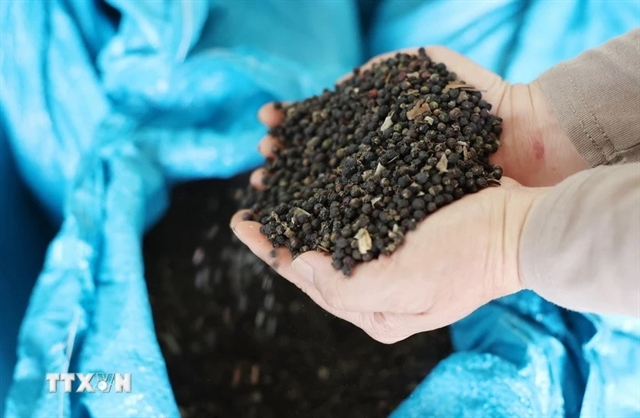 Economy
Economy

 |
| Although spices are included in the tariff exemption list, Vietnamese businesses are advised to verify details with US importers and to stay updated on non-tariff risks, according to VPSA. — VNA/VNS Photo |
HÀ NỘI — US President Donald Trump on November 13 signed an executive order exempting a range of imported food items, including beef, tomatoes, coffee, and bananas, from the widespread reciprocal tariffs introduced earlier this year.
This move comes as part of a broader effort by the Trump administration to address growing concerns among American citizens regarding persistently high food prices.
Vietnam News Agency's correspondent in Washington cited the statement from the White House indicating that the new exemptions, effective retroactively as of midnight November 13 (local time), represent a significant shift in Trump's previously firm stance that his import tax policy did not contribute to inflation.
This reversal follows a series of Democratic victories in state and local elections in Virginia, New Jersey and New York on November 4, which underscored affordability as a pressing issue for the electorate.
In recent weeks, Trump has shifted his focus entirely to affordability, asserting that any additional costs should be attributed to the policies of his predecessor, Joe Biden, rather than his own tariff strategies.
The American consumer is frustrated with the high cost of food. Economists suggest that the high food prices, which many Americans continue to experience, are partly the result of these import tariffs, a situation that could worsen next year as companies begin to pass the full burden of tariffs onto consumers.
According to the Vietnam Pepper and Spice Association (VPSA), spices are also on the exemption list, which is a positive signal for imported spice products.
For Việt Nam, a major exporter of pepper and spices, this presents a favourable opportunity to regain market share in the US, provided that businesses meet the necessary import standards, quality and certification requirements.
However, the association cautioned that exemptions from countervailing duties do not equate to waivers of all import tariffs. Companies are still required to comply with standard US import taxes, customs procedures, food safety standards, and certifications.
Moreover, not all agricultural products qualify for tariff exemptions.
Although spices are included in the list, Vietnamese businesses are advised to verify details with US importers and to stay updated on non-tariff risks, including sanitary and phytosanitary standards, residue testing, and traceability requirements. — BIZHUB/VNS




